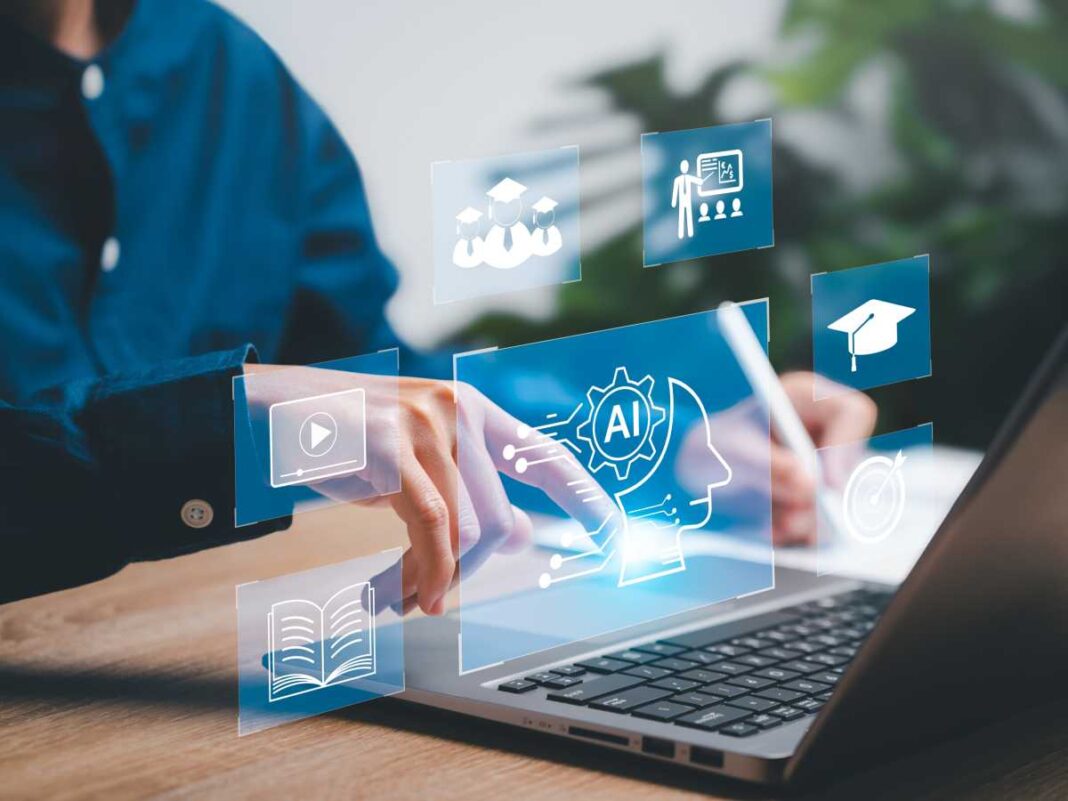Modern education is undergoing a complete transformation as artificial intelligence (AI) and machine learning become integral to teaching and learning processes. AI is a futuristic concept, and it presents reality that’s reshaping how educators teach and how students learn. By leveraging AI, education is moving towards a more personalized, efficient, and accessible future.
One of the most significant impacts of AI in education is the shift towards personalized learning. AI-powered adaptive learning systems analyze student performance data to tailor educational content to individual needs. This means that instead of a one-size-fits-all approach, students receive customized learning paths that adjust in real-time to their strengths and weaknesses. Platforms like Duolingo use AI to modify lesson difficulty based on user performance, enhancing engagement and boosting academic outcomes.
AI is also transforming teaching methodologies by providing educators with tools that streamline both administrative and instructional processes. Tasks such as grading and creating interactive lessons can now be automated, allowing teachers to focus more on facilitating learning and fostering critical thinking skills in students. AI-driven assessment tools analyze student responses instantly, offering immediate feedback and deeper insights into comprehension and progress. This dynamic approach marks a significant departure from traditional static exam formats, making evaluations more adaptive and insightful. As highlighted in a comprehensive review, AI is enhancing learning experiences and reshaping educational practices.
Moreover, AI technologies have a critical role in making education more accessible. Tools like text-to-speech and language translation are enhancing classroom accessibility, particularly for students with disabilities or language barriers. For instance, Microsoft Immersive Reader assists dyslexic students by converting text to speech and adjusting font styles, enabling them to engage with content more effectively.
The automation capabilities of AI extend beyond instruction to administrative tasks as well. AI-powered systems can optimize enrollment management, scheduling, and resource allocation. This helps improve the efficiency and effectiveness of educational institutions. By automating administrative duties, educators are freed to concentrate on core teaching responsibilities and student engagement.
Despite the numerous benefits, the integration of AI in education is not without challenges. Concerns around data privacy, algorithmic bias, and the digital divide must be addressed.
Looking ahead, the role of AI in education is expected to grow exponentially. The AI education market is expected to expand from $5.2 billion in 2024 to over $112 billion by 2034, indicating a significant and increasing influence. AI’s ability to transform learning into a personalized, data-driven experience is setting the stage for a future where education is more engaging, effective, and accessible to all.
Educators are encouraged to embrace AI as a tool to augment their capabilities, not replace them. By utilizing AI for personalization and routine tasks, teachers can focus on mentorship and fostering creativity and critical thinking in students. As one expert notes, AI’s integration in education aims to transform educational practices and prepare students for success in the digital era.
In all, AI and machine learning are reshaping education by offering personalized learning experiences, enhancing teaching methodologies, and optimizing administrative processes. Although there are challenges, the potential benefits of AI in creating a more inclusive and effective educational landscape are immense. It is imperative that educators and institutions adapt to these changes, leveraging AI to create meaningful learning experiences and shape the future of education.


